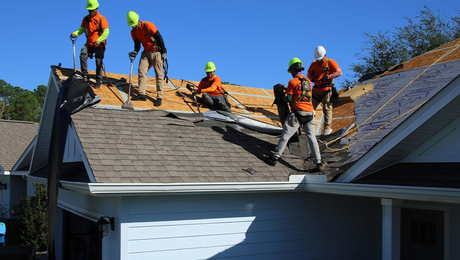I am working on a basement remodel (2000SF) to include laundry room, tv room-pool table area and storage closets. Part of the area–utility room will be unfinished. The project is located in a Chicago suburb. In the past, I have insulated the exterior wood framed walls with fiberglass batt insulation installed in between the stud cavaties including a poly vapor barrier. On this job, I would like to use steel studs and pass the electrical conduit through the KO’S and not insulate. 5/8″ drywall will be used on the walls. A suspended ceiling will be installed throughout. I plan on not insulating the exterior walls; instead installing a better HVAC system. This way, we will not have to hassle with the persistant moisture problems (relative humidity) during the summer months associated with deep basements in my area. I have done a few budget basements this way in the past with no problems–I hate the smell of mold! The properly insulated basements still get cold during the frigid winter months. I figure common moisture problems during summer months and cold conditions during the winter months are better corrected with proper ventilation vs. more insulation. Please advise.
Discussion Forum
Discussion Forum
Up Next
Video Shorts
Featured Story

Listeners write in about haunted pipes and building-science tomes, and they ask questions about roof venting and roof leaks.
Featured Video
How to Install Exterior Window TrimHighlights
"I have learned so much thanks to the searchable articles on the FHB website. I can confidently say that I expect to be a life-long subscriber." - M.K.














Replies
"This way, we will not have to hassle with the persistant moisture problems (relative humidity) during the summer months associated with deep basements in my area. "
How much is it going to cost to continously remove the moisture from the air with AC will bring in more moisture with more ventalation.
If you use insulation in the basement you keep the walls warming, eliminate condensation in/on the walls.
And you need the proper HVAC to keep direct cool air upstairs will sill recirculating air in the basement.
But NEVER USE FG INSULATION AND POLY IN THE BASEMNT.
Use sheet foam for both the insulation and the vapor retarder.
.
A-holes. Hey every group has to have one. And I have been elected to be the one. I should make that my tagline.
Before you skip the insulation, read over this from buildingscienceconsulting.com http://www.buildingscienceconsulting.com/resources/foundations/Basement_Insulation_Systems-2002.pdf
Good luck,
CC
I read the manuscript. I believe insulating the exterior walls is the best way to go. However, most exterior insulation does not go all the way to the foundation top.
The house was built in the 1970's--what is the probability of exterior insulation below grade.
It is very disturbing to me that many contractors are still insulating exterior basement walls this way. I am a firm believer in energy reduction, but do not believe that below grade uninsulated basements use 30% more energy to heat. Heat rises. Most heat is lost through the ceilings?
I have remodeled a few basements on very old homes w, leaky stone walls and newer perimeter drain systems. Every time it rains, moisture will eventually seep through the mortar joints, into the "gutter", into the ejector pit, etc. I definitly would not use fiberglass batt insulation in this case. We could use 2" rigid, but would be difficult to properly install--since stone walls have very irregular surfaces.
If
You make it go all the way to the foundation top. When you get there, you cap it or better yet, urethane the rim.
You're on the right track. Real trucks dont have sparkplugs
I remodel at least 3 basements in Michigan every year. Our basements are like yours, 8' to 9' tall. We stud the walls with full 2" x 4"s, never furring strips, we never use fiberglass and the last thing you will ever want to do is add a poly vapor barrier. Poly vapor barriers trap moisture between the concrete and insulation causing mold. If you cannot control the moisture coming in, then you will have to manage it. The best and most comfortable basements we have built all have closed cell spray foam insulation. The wonderfull thing about spray foam is the ability to completely seal the rim joist, spray foam can keep the warm humid air in the summer from condensating on the cold surfaces of the concrete walls. Over sizing your HVAC system to over come the latent load from moisture intering the basement is a horrific idea. Insulate correctly and you can size the HVAC equipment correctly, which will save money, the down sized equipment and the electricy to run it. It usually costs more to do it correctly up front however your customers will not only be satisfied customers, they'll become loyal customers realizing that you gave them the best system that will require the least amount of maintenance and cost in the end.